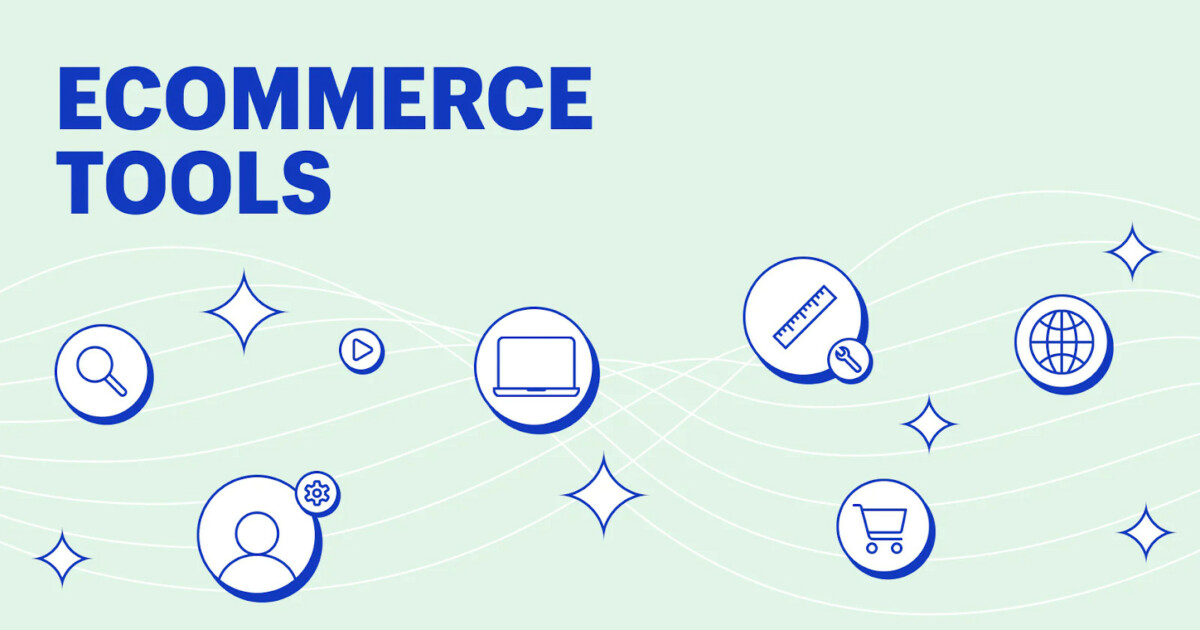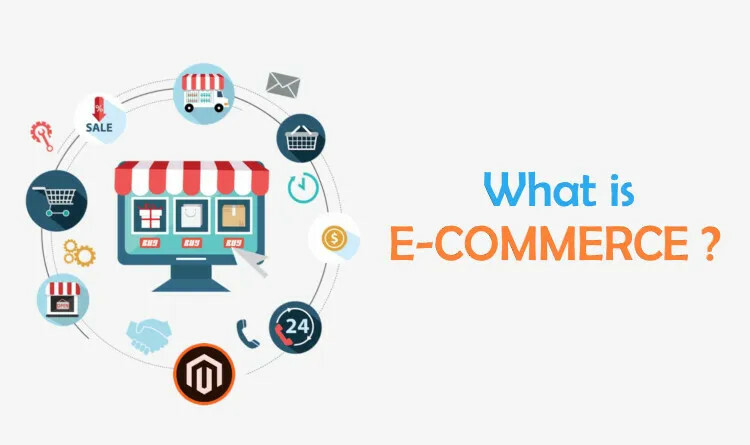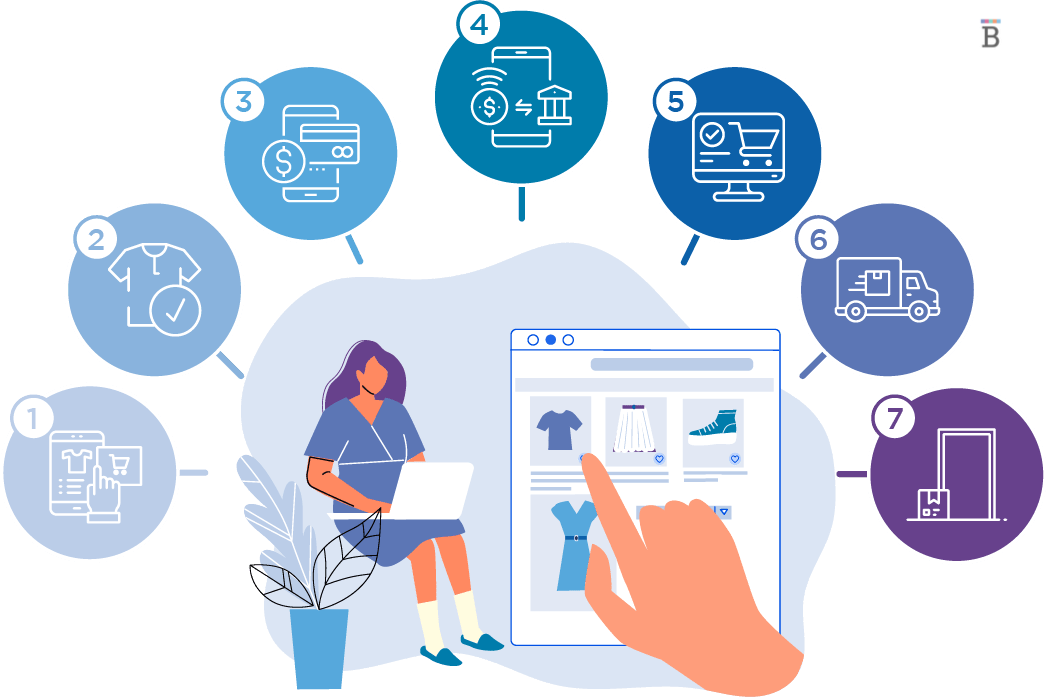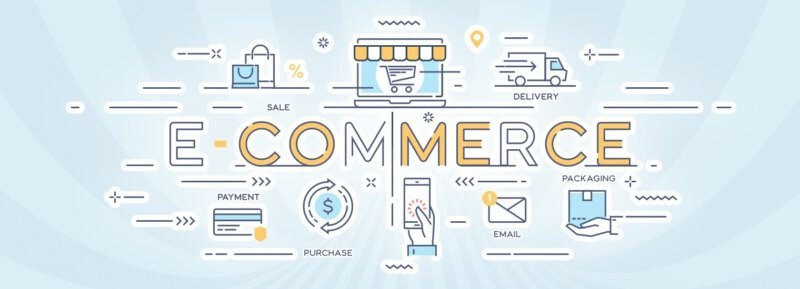Maximizing Efficiency and Profits with the Best Ecommerce Tools for Real Estate Industry
They trust us:





Best E-commerce Tools For the Real Estate Industry

(source: https://images.app.goo.gl/nqFK8QdJiXAcxzg77)
Real estate is one of the most profitable industries in the world and it requires a lot of digital tools to ensure that operations are running smoothly. With the right e-commerce tools, real estate businesses can automate their processes, increase sales and generate more leads.
The best e-commerce tools for the real estate industry include CRM software, marketing automation platforms, lead generation systems, online payment processors, and website builders.
These tools help agents manage their contacts, automate marketing campaigns and generate leads more efficiently. They also enable them to accept payments online securely and create professional websites quickly. Using these e-commerce tools can help real estate businesses streamline their operations and make them more profitable.
Overview: BigCommerce is an e-commerce platform designed to help businesses create and manage online stores. It offers various features such as website design, product management, checkout, and shipping.
Starting price: BigCommerce offers four pricing plans starting at $29.95/month, $79.95/month, $299.95/month, and enterprise-level pricing.
Key features: Website design, product management, checkout, shipping, payment gateways, analytics, integrations.
Overview: Calcurates is a shipping rates management software designed to help businesses calculate shipping rates and taxes for their online stores. It offers features such as real-time shipping rates, taxes and duties, and shipping rules.
Starting price: Calcurates offers three pricing plans starting at $29/month, $79/month, and $199/month.
Key features: Real-time shipping rates, taxes and duties, shipping rules, custom branding, integration with e-commerce platforms.
Overview: CartStack is a cart abandonment software designed to help businesses recover lost sales by sending automated cart abandonment emails to customers. It offers features such as email templates, A/B testing, and analytics
Starting price: CartStack offers three pricing plans starting at $49/month, $149/month, and custom pricing.
Key features: Cart abandonment recovery emails, pop-ups, A/B testing, reporting, integrations.
Overview: Volusion is a cloud-based e-commerce platform designed for small and medium-sized businesses. It offers features such as website design and customization, order management, product catalogs, and payment and shipping integrations.
Starting price: Volusion offers three pricing plans starting at $29/month, $79/month, and custom pricing.
Key features: Website design and customization, product catalogs, order management, payment and shipping integrations, mobile app.
Overview: Ecwid is a cloud-based e-commerce platform that enables businesses to create online stores and sell products across multiple channels, including websites, social media, and marketplaces.
Starting price: Ecwid offers three pricing plans starting at $15/month, $35/month, and $99/month when billed annually.
Key features: Multi-channel selling, website integration, mobile app, product catalogs, order management, payment and shipping integrations.
Overview: PrestaShop is an open-source e-commerce platform that allows businesses to create and customize online stores. It offers features such as website design and customization, product catalogs, and order management.
Starting price: PrestaShop is free to download and use, but additional costs may apply for themes, modules, and hosting.
Key features: Website design and customization, product catalogs, order management, payment and shipping integrations, mobile app.
Overview: Sellfy is an ecommerce platform designed for creators and artists who want to sell digital products such as ebooks, music, videos, and more. It offers a range of features that are specifically tailored to digital products, such as secure downloads, anti-piracy protection, and integration with popular payment gateways.
Starting price: $19/month
Key features: Customizable storefront, order management, analytics, digital product delivery, product upselling, marketing tools
Overview: Shopify is one of the most popular ecommerce platforms that allows users to create online stores and sell products online. It offers a range of features and integrations, making it suitable for businesses of all sizes and industries.
Starting price: $29/month
Key features: Customizable storefront, order management, analytics, product management, marketing tools, third-party app integrations, abandoned cart recovery, multichannel selling
Overview: Weebly is a website builder that also offers ecommerce functionality for users to create an online store. It provides a range of features, including a drag-and-drop editor, customizable themes, and SEO tools.
Starting price: $0/month for a basic plan, $12/month for the starter plan
Key features: Customizable storefront, order management, analytics, inventory management, shipping and tax calculator, marketing tools, mobile app
Overview: Squarespace is a website builder that offers ecommerce functionality for users to sell products online. It provides a range of templates and designs, making it suitable for businesses that want to showcase their products visually.
Starting price: $26/month for the basic commerce plan
Key features: Customizable storefront, order management, inventory management, analytics, payment processing, marketing tools, abandoned cart recovery.
What are Ecommerce tools?

(source: https://images.app.goo.gl/gQmxay6AfWWVhqfz7)
E-commerce tools are software solutions that help businesses to create, manage, and grow their online stores. They provide the necessary tools to build an e-commerce platform, manage inventory, process payments, and track customer data. With the help of these tools, businesses can quickly set up their online stores and start selling products or services.
Furthermore, they can use these tools to gain insights into their customer base and optimize their marketing efforts. E-commerce tools are a great way for businesses to increase their sales and reach more customers. These tools can help streamline the process of setting up an online store, managing inventory, processing payments, and more.
They can also provide valuable insights into customer behavior and preferences. With the right e-commerce tools, businesses can make sure they are providing their customers with a great shopping experience while also increasing their sales.
Why should Real Estate companies use Ecommerce tools?
Real estate companies have a lot to gain from using e-commerce tools. These tools can help them create an online presence, streamline their operations, and generate more leads.
There are a variety of reasons why real estate companies should use e-commerce tools.
- One reason is that it can help them save time and money. By using e-commerce tools, real estate companies can quickly and easily find the best deals on products and services.
- They can also stay up-to-date on the latest trends in the industry, which can help them make better decisions about their business.
- By using e-commerce tools, real estate companies can keep their customers more likely to return when they need service or buy a product.
- Finally, e-commerce tools can help to build relationships with potential customers and promote new products and services.
What features should Ecommerce tools include for Real Estate agents?

(source: https://images.app.goo.gl/kUmXr5iUZbyo9QX16)
Real estate agents are constantly looking for ways to streamline their business operations and increase their productivity. To help them succeed, E-commerce tools need to include features that make it easier for agents to manage their listings, market their properties, and attract potential buyers.
These features should include:
- The ability to create custom listing pages that attractively showcase the property,
- Search engine optimization tools to help agents reach more potential buyers online
- Customer relationship management tools that allow agents to keep track of interactions with clients.
Additionally, E-commerce tools should provide analytics capabilities so real estate agents can track the performance of their campaigns and make informed decisions about how best to market their properties.
What types of integrations are important with Ecommerce tools for Real Estate agents?
Real estate agents are increasingly turning to e-commerce tools to help them streamline their operations and increase their sales. Integrations with these e-commerce tools are essential for real estate agents to ensure that they can access the data they need quickly and easily.
By integrating with third-party services, real estate agents can take advantage of features such as automated marketing campaigns, lead management, and customer segmentation.
This type of integration also allows for the customization of customer experiences which is key in today’s competitive real estate market. With the right integrations in place, real estate agents can increase their efficiency and maximize their profits.
Integrations with payment processing systems, CRM software, marketing automation platforms, and other third-party services are essential for real estate agents who want to maximize their success.
By integrating these tools, real estate agents can streamline processes such as customer relationship management, lead generation, and sales tracking. This will enable them to better serve their clients and improve their overall efficiency.
What are the benefits of using Ecommerce tools for Real Estate companies?

(source: https://images.app.goo.gl/ecCMQto1YT2zDThb6)
Real estate companies can benefit greatly from using e-commerce tools to manage their business. These tools allow them to streamline the process of listing properties, connecting with potential buyers and sellers, and handling payments. Some benefits can be derived from using e-commerce tools for real estate companies.
- Such tools can help to streamline and optimize the process of buying and selling real estate.
- They can also provide more accurate information about prices and availability, which can save time and money.
- E-commerce tools can also help to increase the efficiency of marketing campaigns.
- They can provide valuable insights into customer behaviors and trends which can help improve the efficiency of their operations.
- E-commerce tools also make it easier for real estate companies to reach a wider audience by providing access to a larger pool of potential buyers and sellers.
With these tools, real estate companies can provide better services and increase their profits in the long run.
How to choose the right Ecommerce tool for your Real Estate business?

(source: https://images.app.goo.gl/5EtThBijVpWmg2Y38)
Choosing the right Ecommerce tool for your Real Estate business is essential to ensure that your online presence is successful. There are a few things you need to keep in mind when choosing the right e-commerce tool for your real estate business.
There are many different options when it comes to e-commerce tools for real estate businesses. The best option for you will depend on your business goals, budget, and needs. A few key factors to consider include:
- What is your specific real estate business?
- How much money do you want to spend each month on marketing expenses?
- Do you need a full-blown e-commerce platform or just a few basic tools? -What are your existing website capabilities?
- Do you have any licensed property listings or deals in progress?
- Do you need an eCommerce platform that can handle multiple languages (e.g. Spanish, French)?
Choosing the right e-commerce tool for your real estate business is essential for success. With so many options available, it can be difficult to know which one is best suited for your business.
It’s important to consider factors such as user experience, features, scalability, and cost when selecting an e-commerce tool. By considering these factors, you can ensure that you choose the right e-commerce tool for your real estate business and maximize profits.
How much do the Ecommerce tools cost for the Real Estate industry?

(source: https://images.app.goo.gl/33BgSBVLas1cnK6L8)
Real estate businesses require specialized e-commerce tools to manage their online presence and transactions. The cost of these tools can vary greatly depending on the features, integrations, and other factors that are necessary for an effective e-commerce system.
In general, the cost of an e-commerce tool for a real estate business can range from a few hundred dollars to thousands of dollars per month. It is important to do research and compare different tools to find the most cost-effective solution for your business.
The cost of e-commerce tools for the real estate industry can vary depending on the features and capabilities required. While some basic tools may be available at a low cost, more advanced features such as automated marketing, lead generation, and analytics will likely require a higher investment.
It is important to consider all of the potential benefits that these tools can provide when making an informed decision about which e-commerce tool is best for your business needs.
Why are Ecommerce tools necessary for the success of your Real Estate business?
Real Estate businesses need to make sure that they are up-to-date with the latest eCommerce tools to stay competitive and successful. E-commerce tools enable Real Estate businesses to automate processes, streamline operations, and increase efficiency.
E-commerce tools are important for the success of any real estate business. By providing consumers with easy access to information, good deals, and a variety of products, E-commerce can help businesses stay afloat during tough times.
Additionally, by creating an online presence for your business, you can interact with potential customers in a more personal way than with traditional marketing methods. This can help you build relationships and grow your customer base faster than if you had to rely on cold calls or flyers.
They can also help Real Estate businesses reach new customers and markets, as well as provide data-driven insights for decision-making. With the right eCommerce tools, Real Estate businesses can ensure their success by improving customer service, increasing sales, and creating a better overall user experience.
How to implement Ecommerce tools as a realtor?
As a realtor, it is important to stay ahead of the competition and keep up with the latest trends in technology. E-commerce tools are becoming increasingly popular among realtors as they provide an easy and efficient way to manage their business operations.
By implementing e-commerce tools, realtors can streamline their processes, increase customer satisfaction, and create a more efficient workflow. E-commerce tools can help realtors save time by automating tasks such as listing properties, creating contracts, managing payments, and tracking progress.
Additionally, they can also provide valuable insights into customer behavior and preferences which can be used to improve marketing strategies. There are some different ways to implement e-commerce tools into your real estate business.
- One way is to use a platform like Wunderlist or Spreadshirt to create and manage your Inventory. You can also use the website Amazon Seller Services to sell items you don’t have room for in your office or storefront.
- Another option is to create an online store and sell through Google Play, Apple’s App Store, or other digital platforms.
- Finally, you could also partner with an e-commerce software company like Shopify or Magento to help manage your inventory and sales efforts.
Realtors who implement e-commerce tools will be able to stay ahead of the competition and make sure that their business operations are running smoothly.
Which type of real estate companies should buy e-commerce software?
For real estate companies looking to increase their online presence and customer engagement, investing in E-commerce software can be a great way to do so. This type of software allows companies to easily create an online store, manage orders and inventory, and even accept payments from customers.
There are a few types of real estate companies that should buy E-commerce software. These companies include:
- Apartment developers
- Realtors
- Mortgage servicers
Companies that specialize in residential or commercial real estate should especially consider investing in E-commerce software as it can help them better manage their properties and improve customer service.
Additionally, those who are looking to expand into other markets or offer more services should also consider buying e-commerce software as it will allow them to create a more comprehensive offering for their customers.
Final thoughts on using E-commerce tools for real estate agents

(source: https://images.app.goo.gl/v13f3febwhXP2R9JA)
In today’s digital age, real estate agents need to leverage the power of e-commerce tools to stay competitive in the market. Using e-commerce tools can help agents save time and money by automating processes such as listing properties, managing customer relationships, and tracking sales.
Additionally, these tools can provide valuable insights into customer behavior that can be used to optimize marketing campaigns and increase sales. With the right e-commerce tool, real estate agents can take their business to the next level.
In conclusion, e-commerce tools are an invaluable asset for real estate agents who want to stay competitive in today’s market. With the right toolset, they can better manage their business and make sure that they are providing the best possible service to their clients.
Top 10 Ecommerce tools for real estate agents
| BigCommerce | |||
| Calcurates | |||
| Cartstack | |||
| Volusion | |||
| Ecwid | |||
| PrestaShop | |||
| Shopify | |||
| Squarespace | |||
| Weebly | |||
| Sellfy |










